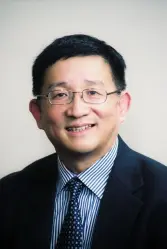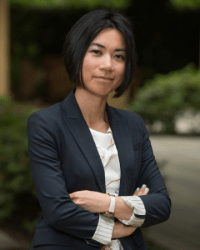

9:00 am EDT - 11:30 am EDT
Past Event
Asian countries were the first to be hit by COVID-19, and as such the first to respond and the first to begin the task of reopening their societies and economies. In two panels — one with experts from the cities of Hanoi, Hong Kong, Seoul, and Taipei, and another with experts on Asian economic sectors — this webinar explored efforts to lift social restrictions and reopen economies.
Brookings President John R. Allen offered opening remarks calling for the community of nations to find common purpose and shared commitment to find the way out of the COVID-19 crisis.
The first panel was chaired by Cheng Li, John L. Thornton China Center director and senior fellow, and moderated by Lee Kuan Yew Chair in Southeast Asian Studies and Senior Fellow Jonathan Stromseth. Discussants emphasized three key components to the reopening strategies of their respective cities: improved governance, close local-central coordination, and testing and contact tracing.
Trang Nguyen, the John N. Hazard Fellow in Comparative and International Law at New York University School of Law, opened the discussion by highlighting Vietnam’s approach to reopening, saying that “the two key features for Vietnam have been better governance and close local-central coordination.”
Multiple respondents stressed the importance of testing. Dae-Joong Lee, the director of the Development Finance Division of South Korea’s Ministry of Economy and Finance, said that “COVID-19 is a testing time for all. The virus knows no borders. It doesn’t respect races, and it doesn’t respect the well-being of people [in] other countries.”
Gabriel Leung, dean of Medicine and Chair of Public Health Medicine at the University of Hong Kong, echoed Lee’s comments. “I think that it’s important to really ramp up testing,” Leung said. “Testing and tracing are the cornerstones of a successful lift to prevent a second wave or at least to prevent a large second wave.”
I-Chung Lai, president of the Prospect Foundation, a Taiwan-based think tank, provided one example of the importance of improving governance approaches to address the crisis. “Due to the SARS epidemic, Taiwan established a central epidemic command [center] which integrated various departments within the government and basically took a whole of government approach in dealing with this [COVID-19] pandemic,” Lai said.
The second panel, chaired by Mireya Solís, Center for East Asia Policy director and senior fellow, and moderated by David Dollar, John L. Thornton China Center senior fellow, explored industry-based responses to reopening in economic sectors such as digital commerce, travel and hospitality, and manufacturing and trade.
Takeaways included the observation that each sector will be affected differently by the crisis, and that international cooperation, for example on allowing open use of COVID-19-related products (e.g. medicines, medical devices), can yield benefits to companies and cities in each region.
Kai-Fu Lee, chairman and CEO of the Chinese venture capital firm Sinovation Ventures, opened the discussion by saying that medical technology companies had a good chance of weathering the economic storm.
“In terms of sectors that can ride this wave with AI and data, healthcare is at the very center,” Lee said. “I believe in the future that it’s inevitable that AI will become a very powerful assistant to doctors and that will be accelerated by the pandemic.”
By contrast, Jane Sun, CEO of the Trip.com Group, a major Chinese travel company, said that the leisure industry had been “badly hit by the coronavirus.”
Robert Grieves, chairman of the American Chamber of Commerce in Hong Kong, echoed that, saying: “We are dependent on tourism, we are dependent on people from mainland China coming down for tourism … and all this has been stopped in its tracks … Many [businesses] will never open again.”
Going forward, Sun said, travel companies “need to make sure that the consumers who are concerned about the virus are very well protected.” Sun added that companies that “adopted [increased] safety standards, got very good volumes of [customers].”
By contrast, the manufacturing side has seen less dramatic impact. Terry Tsao is the global chief marketing officer and president of Taiwan-SEMI, a major semiconductor manufacturer. Tsao said he was “cautiously optimistic” going forward, since “either from the demand side or supply side in the short term, we don’t [currently] see significant impact.”
Keijiro Hora, president and CEO of Mitsubishi Electric USA, closed by echoing other panelists’ statements, saying that that for companies, cooperation going forward will be important: “For China, the U.S. and Japan, as technology centers, it’s better to work together, especially in a tough situation, to fight against COVID-19.”
9:00 am - 9:05 am
9:05 am - 10:15 am
Moderator


Panelist

10:15 am - 11:30 am
Moderator

Panelist

Ling Chen, Ryan Hass, Jennifer Kavanagh, Michael E. O’Hanlon, Bruce Jones, Mireya Solís, Thomas Wright
July 2, 2025

Pavel K. Baev, Robert Einhorn, Sharan Grewal, Samantha Gross, Ryan Hass, Patricia M. Kim, Elizabeth N. Saunders, Yun Sun, Caitlin Talmadge, Shibley Telhami, Andrew Yeo
July 1, 2025

Ryan Hass
July 1, 2025